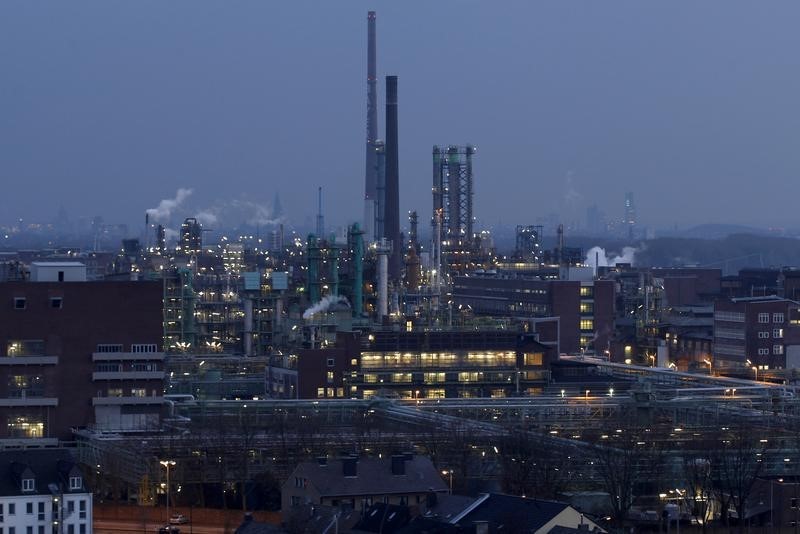Germany industrial output edged higher in May
2022.07.07 10:20

Germany’s industrial output edged higher in May, despite a big drop in energy output as Europe’s largest economy grapples with an increasingly severe supply crisis.
Output edged up 0.2% on the month, less than the 0.4% expected. However, statistics agency Destatis revised up April’s figures to show a gain of 1.3% rather than the 0.6% originally reported. With the monthly baseline revised higher, the level of output was broadly in line or even a little ahead of expectations.
The figures showed the impact of a worsening crisis on energy supplies, with energy production falling by 5.8% on the month even after adjustments for seasonal effects. Consumer goods output also fell by 0.9%, indicating a further shift in spending patterns back to their pre-pandemic character. Output of capital goods, by contrast, rose 2.2% and construction output rose 0.4%.
Overall, output was down by 1.5% on the year, Destatis said, hampered by shortages of components and by the closure of China’s ports during the spring due to COVID-19 lockdowns. which “are still leading to problems with the processing of orders”.
According to the Ifo research institute, some 77% of German firms reported such problems in May.
“Despite today’s small increase, industrial production remains too weak to be a growth driver,” ING analyst Carsten Brzeski said in a note to clients. “The main question is no longer whether the economy could contract this year but rather for how long it will be in recessionary territory.”
Brzeski warned that the energy crisis is likely to intensify the pressure on industry in the near term.
“It will not take until the winter before the energy crisis will escalate further,” he said. “The government’s decisions to bail out an energy company and to change the so-called pricing adjustment mechanism, which allows firms to pass on costs to the consumer, as well as the fact that NordStream 1 will be – temporarily – offline as of next Monday, are just a few illustrations of what could become a perfect storm.”
The euro, which fell earlier this week to a 20-year low against the dollar on fears of a Eurozone recession, recovered slightly in early trading in London to trade up 0.2% at $1.0202 by 03:00 AM ET (0700 GMT).








